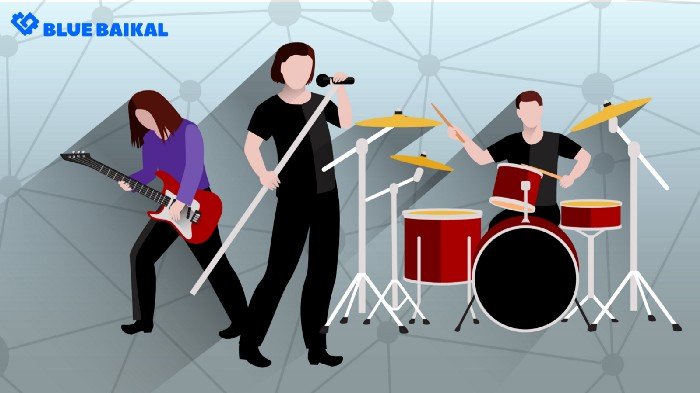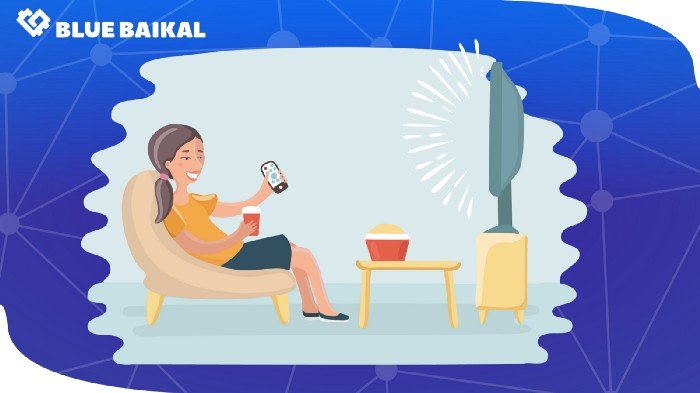
Celebrity lifestyle can be deceptive, especially when the focus is around creating or sustaining a brand. Very often we see music stars and artists driving expensive cars, wearing high-end designer outfits and flaunting all the bling and expensive jewelry. The impression with such a lifestyle is that these guys have all the money in the world.
To complicate matters, celebrity news updates rarely give the proper breakdown of sales and returns about hits whenever they are in the news. We only hear stuff like — “13 million copies sold”, or “20 million downloads recorded in one day”.
The average fan simply makes a rough estimate of price per item either sold or downloaded, weighs it side by side with the celebrity lifestyle and concludes that it is all rosy out there for the artists. You know what? This is far from the truth.
How Is Entertainment Revenue Distributed?
Let us do a rough analysis of the people involved in the music industry and how revenue is shared among them.
Over a decade ago when entertainment content was distributed mainly in Compact Discs and DVDs, there used to be a long line of participants involved in getting content across to consumers. For music content to be released, the following group of stakeholders play different roles: Artist, Producer, Songwriters, Distributor, Manufacturing, Retailer, Record label.
A rough estimate of how profit is distributed among these participants as obtained in the industry is as follows:
Artist (6.5%) Producer (2.1%) Songwriters (4.4%) Distributor (22%) Manufacturing (5%) Retailer (30%) Record label (30%).
Looking at the sharing formula above, you can see that the artists do not fall among the top earners even when the are presented as the focal point of the product. In some cases when the artist is a band or a group of singers, the allocated percentage is split among them.
These days, the way revenue is generated in the music industry has been modified to adapt with the changing technology. CDs are becoming extinct with the introduction of mp3 downloads and streaming services. Platforms like Spotify now provide a different model of generating revenue from entertainment content.
On Spotify, revenue is paid to whoever holds the rights to a song, ranging from $0.006 to $0.0084 per play. This money is yet again shared among the participants that are involved, only this time the queue looks shorter — record labels, producers, artists, and songwriters.
Who Is Behind The Revenue Sharing Formula?
The intricacies involved in revenue sharing in the music industry leaves a lot of people to wonder why the artists remain among the lower earners within the group, despite their roles both in content creation and brand representation.
A persistent question revolves around who determines the sharing formula. Many believe that the artist, who retains the originality of music content are short-changed by this existing revenue structure.
Until there is a direct system that pays every participant independently for the roles that they play, the dilemma around revenue sharing in the entertainment industry will not be solved. Fortunately, this solution is already here with us.

A Direct Reward System On Blockchain
By implementing blockchain technology, the Blue Baikal platform has provided a decentralized model of distributing digital content. This model enables all the participants to earn appropriate revenue that fits the work that they do. Artists already see this as a huge relief, especially the “indie” content content creators who until now have had to play according to the rules of intermediaries such as record labels.
This time, every participant is the boss of themselves, earns rewards directly and does not depend on lump deposits to be shared based on some sharing formula whose originator is not clearly defined.
The Blue Baikal platform consists of artists, influencers, distributors and consumers. Each of these categories of participants plays a direct role that is also rewarded directly by the beneficiaries in the network. A direct transaction occurs between the artists and the consumers of their product. These also serves as a means of checking illegal distribution of content and ensures that what consumers get is the authentic and non pirated copy of entertainment products.
With a protocol that normalizes the reward system, artists can now earn much more rewards for their work. Not just them, but every other participant in the industry. The first step to achieving this is by registering on the Blue Baikal platform, and following the simple steps of uploading your content if you are an artist, or by participating in any other role that you may qualify for.
※ Our project introduction : https://www.bluebaikal.io
※ Our alpha version (Steem Based) : https://www.bluebaikal.com/